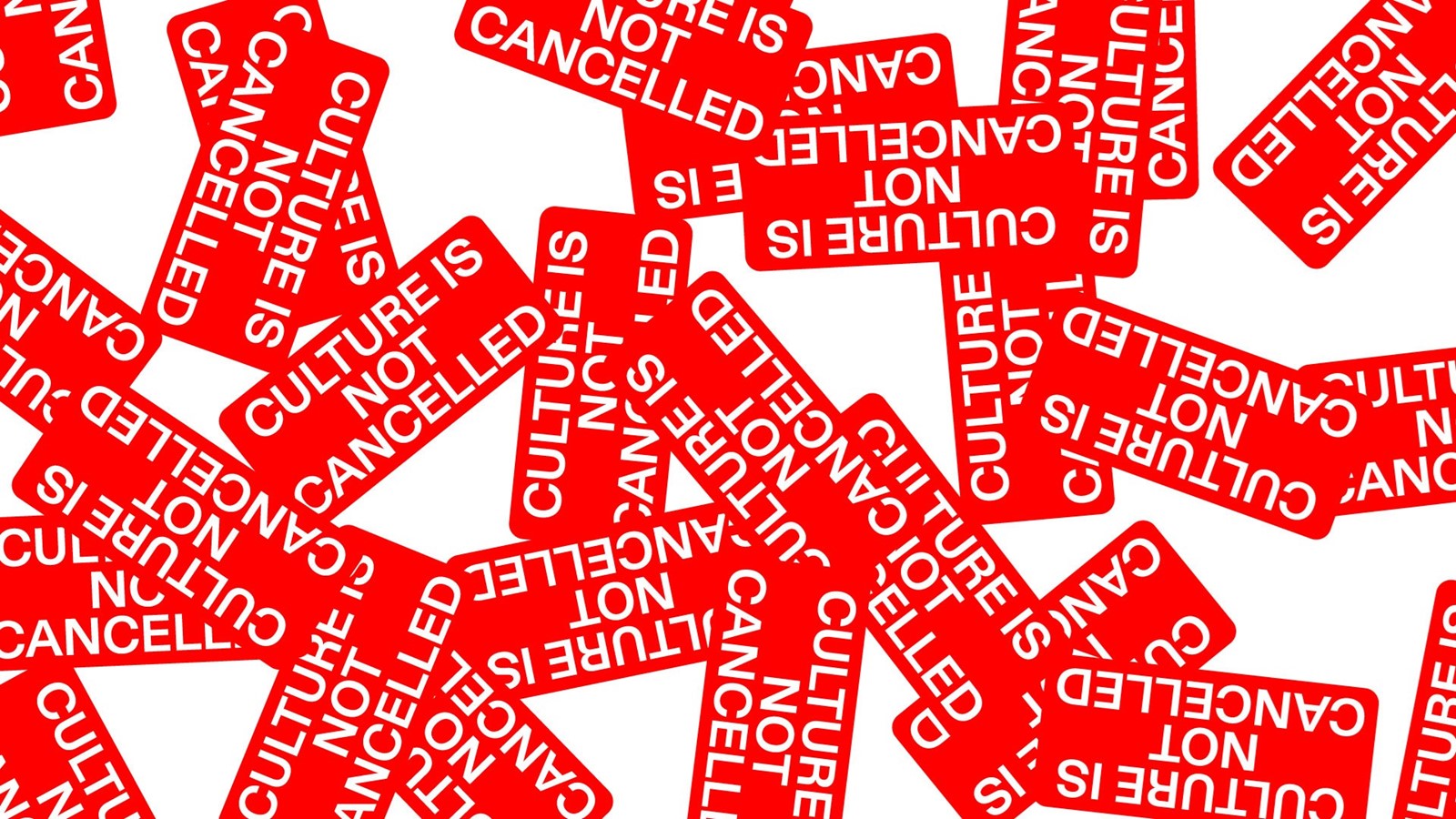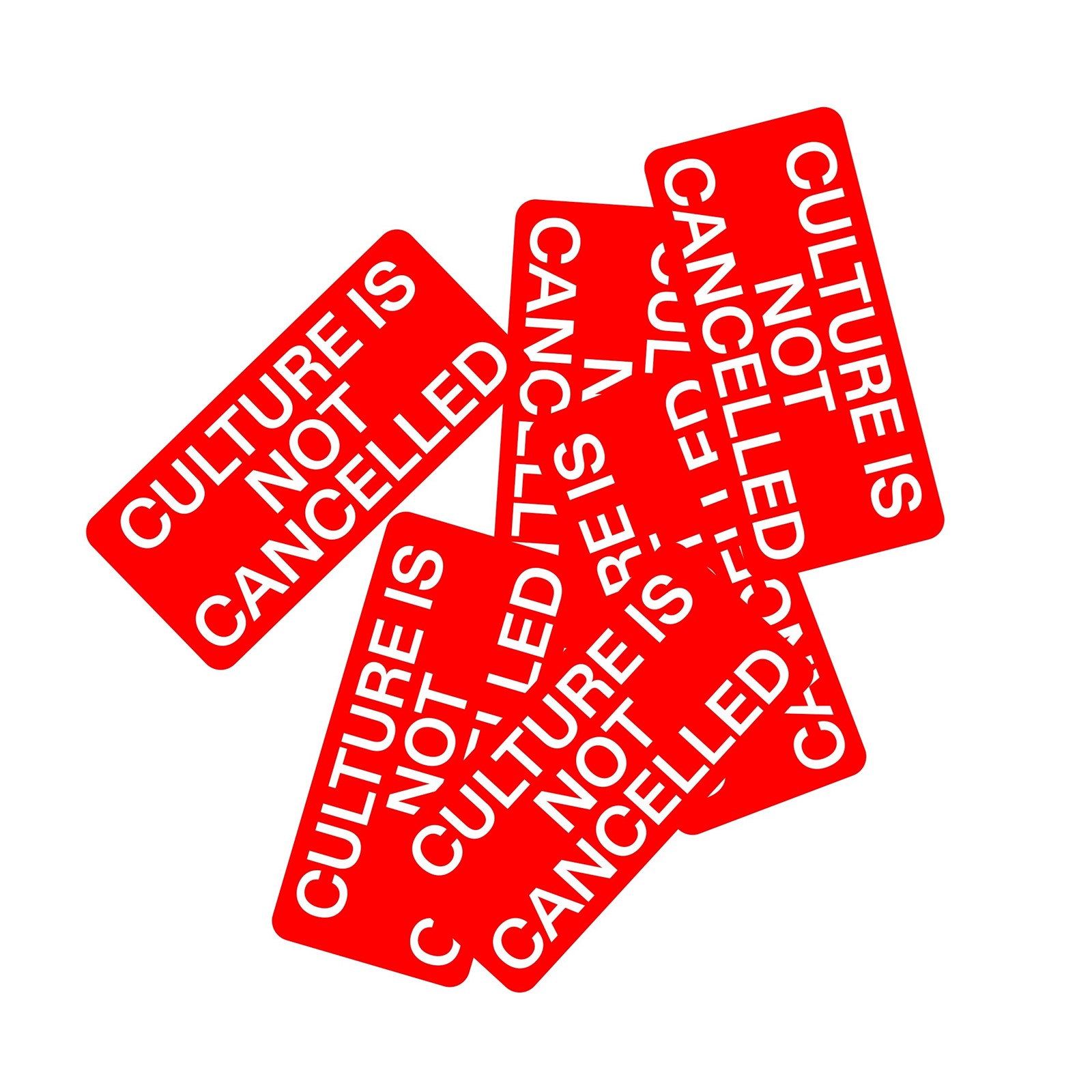At this point it might feel like a cliche to say that we are living in unprecedented times, but we really are. At the time of writing, over 20 per cent of the global population are under some form of state-ordered lockdown in an attempt to contain the outbreak of Covid-19, with no definitive end in sight. The social and economic impacts of this pandemic are already vast – and yet it feels like they’ve only just begun; the system as we know it has ground to a halt, while the prospect of a potentially new world order looms on the horizon.
But what does this mean for the creative industries and those working in them? For a start, the majority of cultural institutions have closed until further notice – some of which haven’t done so since World War Two – meaning that creative workers have lost the opportunity to showcase their work; be it art and design, cinema, music, theatre or dance. Meanwhile, creative workers are facing unique challenges, not least because nearly half of them – 47 per cent, according to the Creative Freelancers Federation – are freelance compared with 15 per cent across the workforce as a whole, leaving them especially vulnerable in this period of economic uncertainty. Furthermore, creativity is often predicated on collaboration, which is rendered difficult or even impossible at a time when social distancing is being enforced. And this barely scratches the surface. However, creativity must go on – surely it has never been more vital, both in terms of helping people through this crisis and imagining a new future once it is over.
It is this that inspired Zak Kyes – the founder of Zak Group, a London-based creative studio that gives shape to visual culture, working across graphic design, strategy, visual arts, fashion and architecture – to post an image with the words ‘Culture Is Not Cancelled’ on Instagram, urging both people and organisations to practise social distancing, but not to cancel culture. “Culture is designed for contact and community is at its core,” he wrote. “As designers our work requires proximity – with colleagues, clients and collaborators. Without the support of culture many of us, from freelancers to small businesses, will be out of work.”
This message resonated with people far and wide across the creative industries, including us here at AnOther Magazine – which is why, over the coming month, we will be devoting this website to Kyes’ vision to not see culture cancelled. We will be supporting creative workers by showcasing their otherwise cancelled projects: fashion shows, art and photography exhibitions, films, and more – hopefully inspiring, informing and educating people in the process, or simply providing them with some much-needed cultural relief.
Ahead of this campaign, which launches today, we speak to Kyes about the origins of his ‘Culture Is Not Cancelled’ movement, his hopes for the project and what you can do to help – as well as the ways in which he is staying sane during this challenging time.
View this post on InstagramA post shared by Zak Kyes (@zakkyes) on
AnOther Magazine: How has the outbreak of Covid-19 affected you and your creative practice?
Zak Kyes: The pandemic changed everything for us in ways that already feel permanent. Like many, we had to make the decision to work remotely in the absence of guidelines from the government. Our team is now scattered across London with one member in Turkey. What we thought unimaginable yesterday is now the new norm. The ways that we collaborate on a daily basis, which usually require contact and proximity, have fundamentally changed in isolation. The pandemic has forced a social experiment – in how we work and learn – that nobody would have undertaken before. Our lives moved online overnight, and as with all constraints they can provide opportunities for creative responses. ‘Paradigm shift’ has become a cliché – but for once it seems apt.
AM: What are some of the challenges you’re facing?
ZK: There’s so many of them, and on so many levels. There is a practical challenge of suddenly working collaboratively and collectively in isolation. But that’s a challenge that we’re lucky to have. Unlike, say, a restaurant, our work is portable. The primary challenge right now is economic survival. This is the biggest, scariest financial test that I’ve faced in the past 15 years running a business. I don’t want to be a doomsayer, but many of us will go out of business and so will our clients. Salaries and overheads need to be paid, while projects are cancelled or delayed, and payment is postponed. Our friends at Actual Source recently described this as ‘working without capital’. It has been hugely encouraging to see Chancellor of the Exchequer Rishi Sunak’s response in the form of cash grants to businesses and freelancers and I hope the US, which I still think of as home, will learn from this example.
“Implicit in that image is the idea that if we cancel cultural projects in the short-term, we risk cancelling culture in the long-term. But at the same time, the optimist in me was thinking that culture is what defines us and that can’t be cancelled” – Zak Kyes
AM: Can you tell me the story behind the ‘Culture Is Not Cancelled’ campaign you initiated?
ZK: It was never intended as a campaign, just a thought given shape in-real-time. What I call a ‘think today, ready tomorrow’ moment. We started work remotely on March 16. Overnight all of our in-person meetings, trips and engagements were cancelled. The world came to a screeching halt. The next day I felt it was urgent to say where we stand, and also send a message of optimism. I posted an image with the words ‘Culture Is Not Cancelled’ on Instagram with a caption that urged institutions, commissioners and organisations to practise social distancing and flatten the curve, but not to cancel culture. Implicit in that image is the idea that if we cancel cultural projects in the short-term, we risk cancelling culture in the long-term. But at the same time, the optimist in me was thinking that culture is what defines us and that can’t be cancelled.
The message resonated with a ripple-like effect first within the design community and then art, fashion and publishing. As people started adding their own interpretations I realised that we should open-source the message. Our friend Joerg Koch at 032c saw it as a call to support projects you care about and an “act of solidarity for a community working with cultural budgets that are the first to be cut when things get rough”. But it was Jefferson Hack who had the vision to see its potential as a campaign and together we discussed ways to scale the message to serve the community.
AM: What is your hope for the project?
ZK: ‘Culture Is Not Cancelled’ is a call to action. Culture is at risk and we need to advocate for co-operation and solidarity within the creative community. My hope is that institutions and cultural producers will use the message to highlight their projects and creative responses to the seemingly insurmountable challenges. We have open-sourced the logo at cultureisnotcancelled.art and invite everyone to use it in their social channels, websites and campaigns to flag initiatives that keep culture alive.

AM: What are some of the ways that both people and organisations can help, in terms of keeping culture going?
ZK: Financial support is key. Money has stopped moving, so if there are designers, artists, writers, booksellers, type foundries or newspapers that you like, now is the time to subscribe and share their work with your own networks. If you are a commissioner, continue to support your collaborators and suppliers and look for ways to use off-the-shelf technology to move your programmes online. A great ad-hoc and low-tech example is the ICA in London who responded with a daily email digest.
AM: What role do you think culture has to play in helping individuals and society at large through this time?
ZK: Artists and designers are the original prophets of the new. Take the late artist Gustav Metzger for example. A few years before I met him in 2008, he created the campaign RAF / Reduce Art Flights, urging the art world to reduce their use of airplanes. Now that we’re all grounded, the pandemic has accelerated our reassessment of non-stop travel and fast forwarded the reality of the climate crisis.
It’s up to us to respond to this situation with courage and creativity. Artists are often the first to synthesise new forms and knowledge and invent new languages. It is urgent to paint a picture of the world that we want to inhabit after the pandemic. Hopefully good things will come out of this and we will emerge as better humans. That’s why I think culture is indispensable.
“With all crises there is also a huge opportunity ... What can we learn from this and how can we design a new ideology?” – Zak Kyes
AM: Some people are saying that this is an opportunity for the industry – and industries at large – to slow down and recalibrate. What do you think about this? Are there any positives that can come out of this situation?
ZK: We will need to reassess ideas that we take for granted, like the free movement of people, goods and ideas. And we will need to accept that there is no going back, not in three months, not in a year, never.
With all crises there is also a huge opportunity. And this is what is keeping us busy right now, working with clients in the cultural and commercial sectors to strategise and find creative solutions for tomorrow and in the long-term. What can we learn from this and how can we design a new ideology?
One of the most amazing things to see happen is that policies that we were told were impossible, like universal basic income, were actually possible all along.
AM: Can you share some of the things that are helping you personally stay sane in this time?
ZK: Add some joy to your feed with @newyorkercartoons and sign up for the ICA Daily emails edited by its director Stefan Kalmár and the curatorial team with more suggestions. Listen to The World After Coronavirus on curio.io by Yuval Noah Harari and new podcasts by Dave Chang (especially the episode on how the restaurant industry is too small to fail) and Jon Caramanica’s Popcast episode What Music Should I Listen to in a Crisis?.
And support small-scale farmers and sustainable supply chains with Natoora, the home delivery app for chefs, recently opened up to individuals. And, as my friend, the artist Joseph Grigely says, drink good wine. St John, Ancestral, and Tutto deliver.
Follow the #CultureIsNotCancelled campaign on our website, Instagram and Twitter, and check out the official Culture Is Not Cancelled website here.
